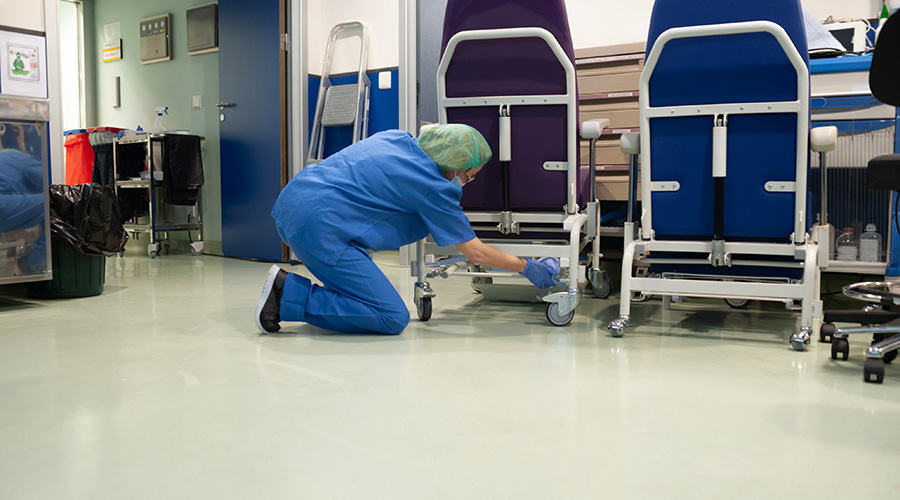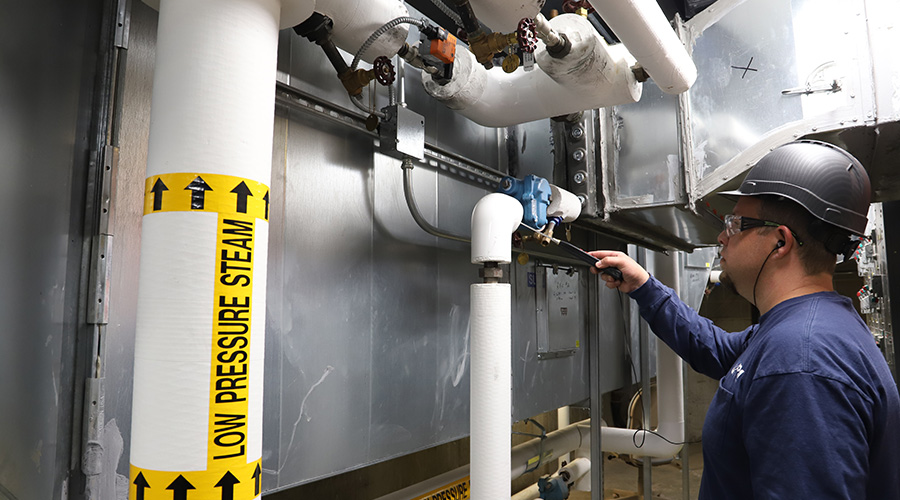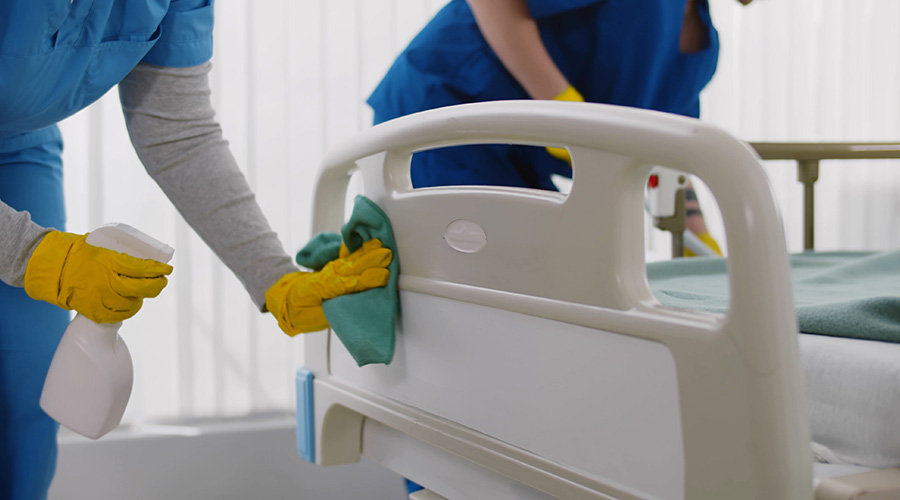When classes begin this fall, the University of Dayton master of physician assistant practice program will be the first teaching organization in the United States to outfit students in revolutionary germ-killing apparel. The program's students will be outfitted in Prime Medical's SAF-T™ scrubs, an innovative line of bactericidal apparel for healthcare that continuously kills germs on contact.
According to the Centers for Disease Control and Prevention (CDC), 75,000 patients died in acute care hospitals as a result of healthcare-associated infections (HAIs) in 2011 alone. Unprotected textiles in healthcare are known carriers of these harmful pathogens. A report in the American Journal of Infection Control indicated more than 60 percent of hospital nurses' and physicians' uniforms tested positive for dangerous bacteria.
SAF-T products protect patients from HAIs by killing harmful germs and bacteria and preventing them from spreading.
"It is very exciting to know that our students, staff and the patients they treat will be protected from harmful pathogens that can lead to infections," said Kevin R. Kelly, dean of the School of Education and Health Sciences at the University of Dayton. "We're pleased to lead the way in adding this new layer of infection prevention to our teaching environment."
SAF-T is the only line of healthcare apparel and textiles to use BioSmart®, a patented fabric technology that binds chlorine to the surface of fabric to continuously kill 99.9 percent of harmful pathogens for 120 days between wash cycles. Each laundering with EPA-registered bleach completely recharges the germ-killing effectiveness through 75 industrial wash cycles, with no loss of efficacy and without fading the fabric.
Bactericidal soft surfaces, such as SAF-T scrubs, augment existing infection prevention protocol, including hand hygiene, hard surface disinfection and instrument sterilization. Rather than serving as a fomite – an object that contributes to the spread of deadly infections – these textiles reduce HAIs and improve patient outcomes.
"Bactericidal fabrics are the new frontier in healthcare apparel, particularly as antibiotic-resistant super-bugs and HAIs continue to rise," said Jim Sampey, CEO of Prime Medical. "We're pleased that the University of Dayton is taking the steps to protect healthcare staff and patients from preventable infections, while also shining a light on new infection prevention protocols for tomorrow's healthcare professionals."
For more information, visit www.primemedical.comor www.saf-t-scrubs.com.

 Biofilm 'Life Raft' Changes C. Auris Risk
Biofilm 'Life Raft' Changes C. Auris Risk How Healthcare Restrooms Are Rethinking Water Efficiency
How Healthcare Restrooms Are Rethinking Water Efficiency Northwell Health Finds Energy Savings in Steam Systems
Northwell Health Finds Energy Savings in Steam Systems The Difference Between Cleaning, Sanitizing and Disinfecting
The Difference Between Cleaning, Sanitizing and Disinfecting Jupiter Medical Center Falls Victim to Third-Party Data Breach
Jupiter Medical Center Falls Victim to Third-Party Data Breach